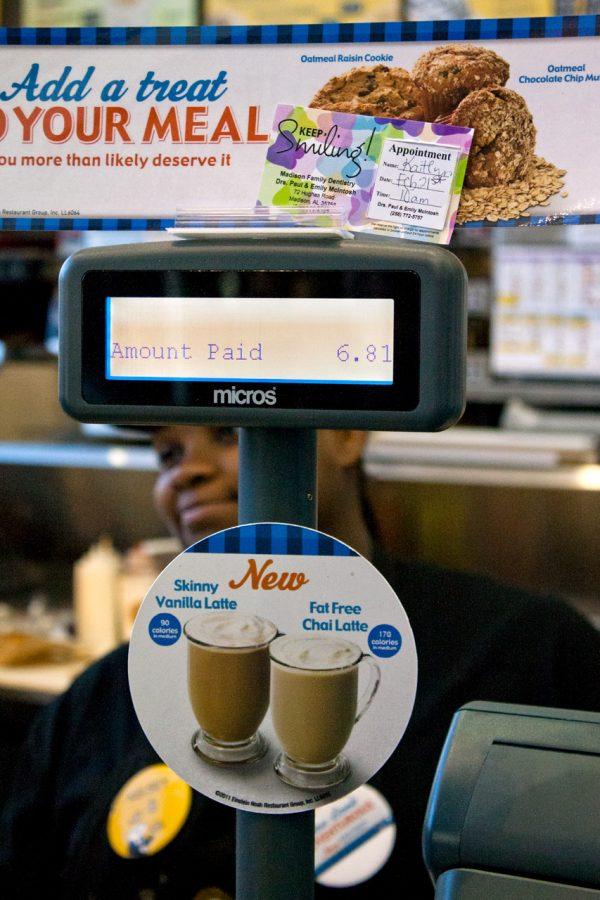Lunch spending compounds commuting costs
February 2, 2012
Half of American workers buy coffee on a regular basis, totaling up to $1,092 a year and two-thirds buy lunch at work, totaling up to $1,924 a year, according to a new study.
A study by the accounting firm Accounting Principals of 1,000 people, who were 18 to 24, showed that people spend more on lunch and coffee than they do on commuting to work.
Many students have issues with saving money while attending college. Freshman Nikki Messer and sophomore Chase Wise agree they spend most of their money on food.
“Food is a necessity, but excessive spending can hurt us more than it helps,” Wise said.
UNA professor of finance Kristy Van Rensselaer understands students as well as non-students will spend money on dining not only because of the need to eat, but also the social aspects of it-as well as feeling the need to grab something such as coffee while out getting through their busy schedules.
“Overspending is not bad for the economy,” Van Rensselaer said. “It is living above one’s needs, so I think it is a negative.”
Van Rensselaer explained why overspending can be good for the economy.
“Consumer spending contributes to 70 percent of our gross domestic product; if we suddenly stop, it would be detrimental to our economy,” she said.
Van Rensselaer said students who rely more on credit cards may end up in personal debt. When students rely on credit cards to get through normal balances with minimal monthly payment, it leads to higher interest.
“It is a psychological factor,” she said. “When you swipe a card, it does not feel like paying, almost as if using monopoly money because you do not have to deal with the payment up front.
She also said the meal plans provided can be convenient but also inconvenient at the same time. For example, if a student chooses to study late, she may crave a snack, which will urge her to drive off campus and buy one.
“We may have to spend a bit more money due to the time pressures of college-which is slightly inconvenient-and also to avoid eating the same food from the cafeteria,” she said.
Messer said people who excessively spend money should look at their budgets.
“We should not spend money frivolously on new shoes rather than textbooks,” she said. “I think it is important that we invest in a savings account.”
Gas is a necessity, Van Rensselaer said, but since students are not driving around for no reason as much as they did in high school, it is not a drastic issue.
“We are aware of the cost,” she said. “If the amount per gallon increased to $4 then we would hear lots of complaints.”
Messer works in Bath and Body Works at the mall. She strives to spend $20 or less for gas. Messer believes that overspending harms society.
“Overspending can lead to the rise of debt, which outcomes the increase in taxpayer dollars,” she said. “There should be other alternatives because the government would not spend on stimulus plans to lower taxes. We are a capitalist country without socialist or communist beliefs.”
Messer offered an explanation as to why people overspend.
“It is the accessibility of it,” she said.
Van Rensselaer said the best tip for students is to make a monthly budget.
“It is hard but the best thing to do,” she said. “Sticking with a budget will help in the long run. Living in your means is good; living beneath your means is even better.”











